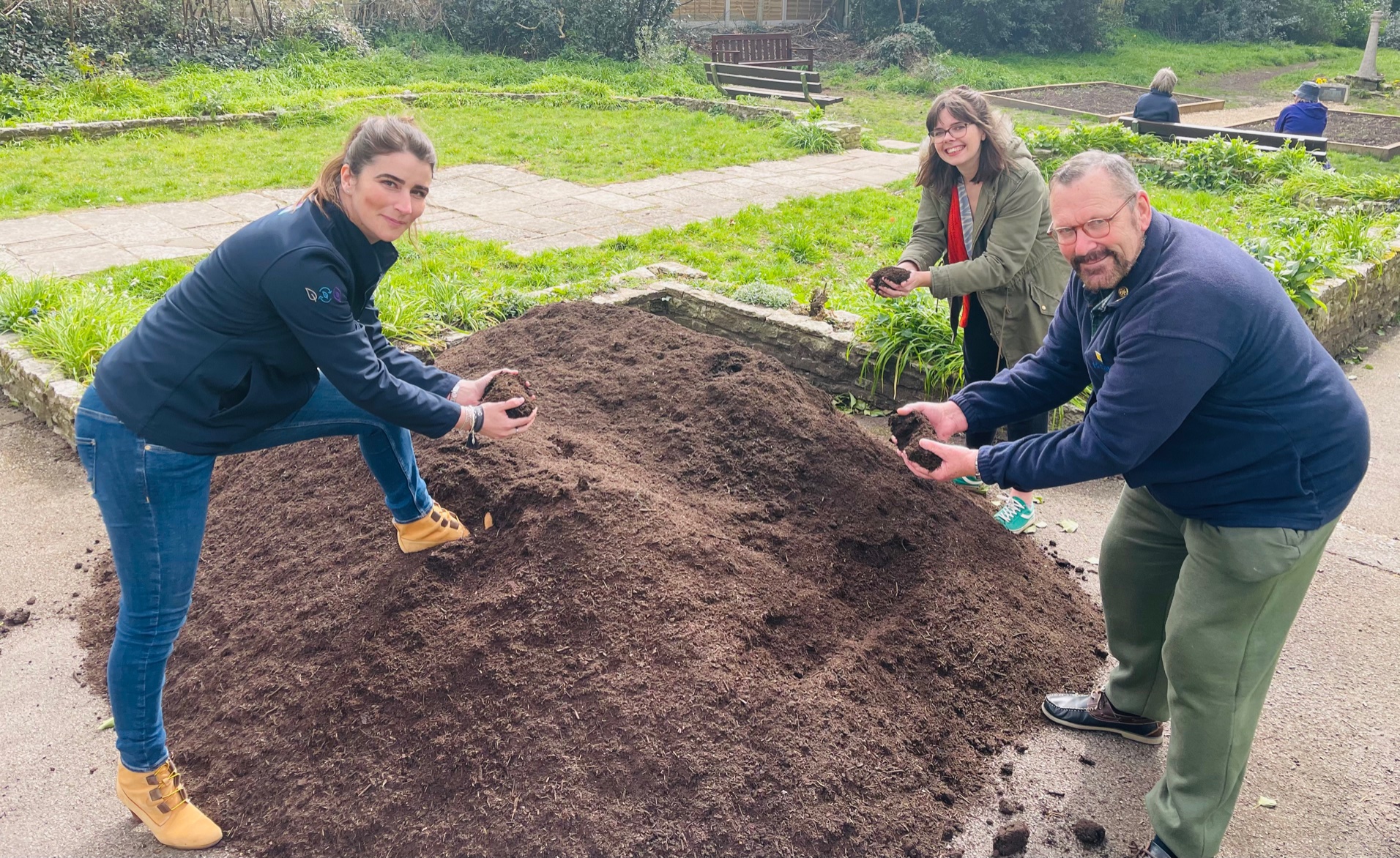Eco Sustainable Solutions has shown its support for a community project at Skerryvore -a garden which was designed and constructed by the Bournemouth Corporation in 1957 as a memorial to Robert Louis Stevenson who occupied the house on the site from April 1885 until August 1887. The house, which was destroyed by enemy bombing on 16th November1940, was named after the Skerryvore Light house built by the Stevenson family firm on the Argyle coast.
Eco has donated 2 tonnes of compost to be used to create raised bedded areas at Skerryvore and also used to create the borders in the raised wall ruins and foundations.
The project is being undertaken by Westbourne in Bloom and Westbourne Rotary Club. Westbourne in Bloom created the organisation, ‘Friends of Skerryvore’ 2 years ago and is made up of a dedicated team of volunteers who will be meeting at Skerryvore on the 3rd Saturday of each month to continue to develop the site.
Westbourne Rotary Community Chairman and Bournemouth in Bloom President Reverend Chris Colledge said, “We are thrilled with the support shown to us by Eco Sustainable Solutions. It’s brilliant how they are helping to support our work. The changes we are making are quite significant and the space is definitely being transformed.”
Eco’s Brand Manager Harrie Cooper added, “It’s hugely important to respect our historical landmarks and regenerate these spaces for our future generations. The work that the ‘Friends of Skerryvore’ are doing is invaluable and they are creating a fabulous community space for people to enjoy. At Eco we are extremely proud to continue to support worthwhile community projects like these.”
About Eco Sustainable Solutions
Eco employs 45 people at three sites across Dorset, processing local, natural organic waste each year which is put back to good use as compost, soil improver, fertiliser, landscaping products and biofuels. It treats 250,000 tonnes of waste a year and also produces clean power from solar power, anaerobic digestion and combined heat and power (CHP).Dorset and BCP councils have produced a joint waste plan that estimates the local area will need to process an extra 232,000 tonnes per year of waste left over after recycling. The councils’ strong preference is to recover energy from this leftover waste ‘wherever practicable’, to minimise the use of landfill and to treat waste locally rather than have it travelling out of the county.For more information, visit www.thisiseco.co.uk.

